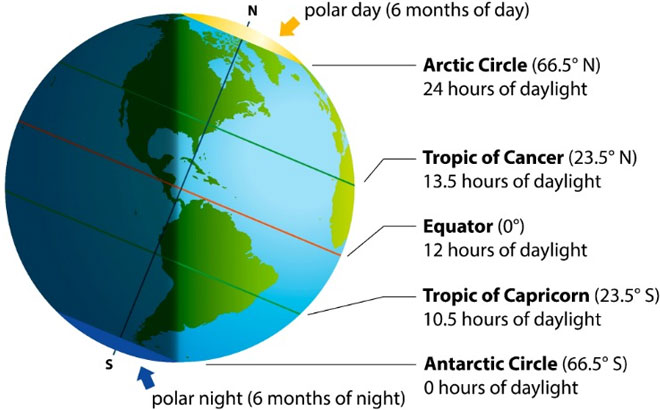Question: What are the two important movements of the earth? Explain.
Answer: The two important movements of the earth are:
Question: How are seasons caused?
Answer: Season are caused due to the revolution of the earth and the tilt of the earth’s axis.
Question: Which are the four main seasons?
Answer: The four main seasons are:
- Summer
- Spring
- Winter
- Autumn
Question: What are the spring and autumnal equinoxes?
Answer: On 21 March and 23 September the sun is directly overhead the equator and the earth experiences spring equator and autumnal equinox on these two days, respectively.
Question: Explain the position of earth during summer solstice with the help of a diagram?
Answer: On 21 June when the sun is shining directly overhead the Tropic of Cancer and the northern hemisphere is tilted towards the sun it experiences summer solstice. The number of hours of daylight. All the places in the northern hemisphere have their longest day on this date.

Glossary:
- Rotation: movement of the earth on it’s own axis.
- Revolution: movement of the earth around the sun.
- Leaning: not straight, lent forward.
- Tide: a regular rise and fall in the level of the sea which happens twice a day.
- Leap year: a year when February has 29 days, it happens after every four years.
- Accumulate: get more and more of something over a period of time.
 Class Notes NCERT Solutions for CBSE Students
Class Notes NCERT Solutions for CBSE Students


